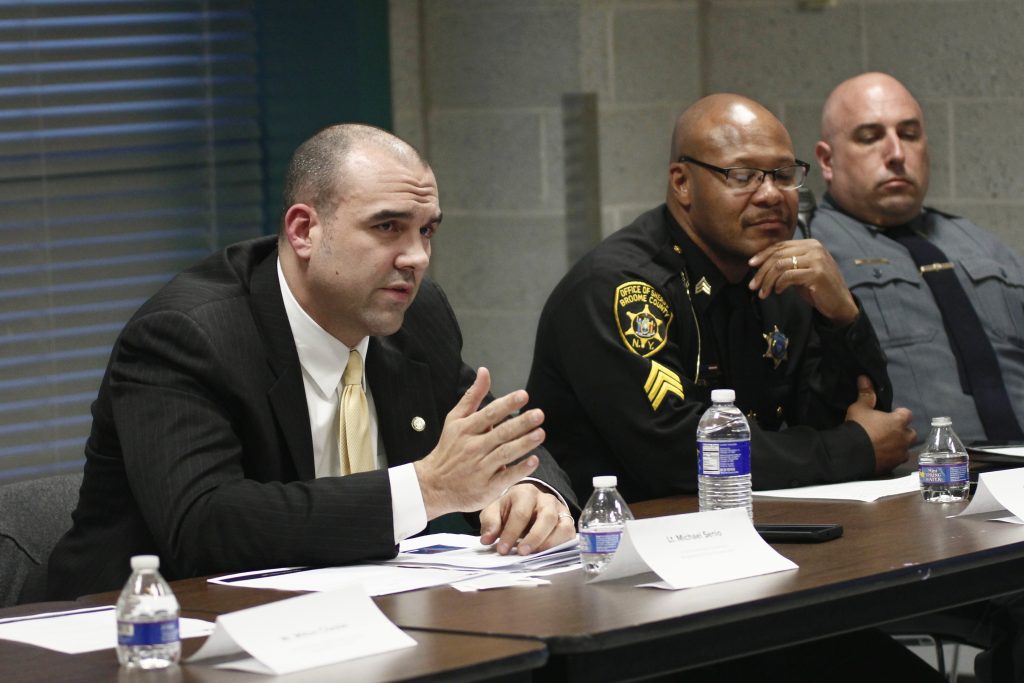
Around 40 students attended the first town hall hosted by the Binghamton University Roosevelt Institute on Tuesday, the BU branch of a national political think tank, to discuss the safety of students and their interactions with the local community.
Brianna Cea, president of the Roosevelt Institute and a sophomore double-majoring in political science and philosophy, politics and law, said the event was designed to educate and engage students in a conversation about their safety while off of the BU campus.
“By addressing safety and demonstrating how students can have a say in the political process, I hope that students will see themselves as part of the greater Binghamton community,” Cea said.
The town hall featured a panel of campus and local officials, including Binghamton Deputy Mayor Jared Kraham; Sammy Davis, Broome County sheriff training director; Michael Senio, Binghamton Police Department crime prevention lieutenant; Binghamton City Councilman Conrad Taylor, a junior majoring in political science; Milton Chester, BU assistant dean for off-campus programs and services; and Lt. Marc Leniek from the Binghamton’s New York State University Police.
The panel was moderated by Zachary Frieden, vice president of the Roosevelt Institute and a sophomore majoring in political science. The questions addressed included the relationship between students and police, poverty in Broome County, rising index crime rates in the city of Binghamton and the recently accounted blue-light project. Frieden asked the panelists prepared questions and then opened up the discussion to the audience.
On the issue of student-police relations, Taylor said the responsibility is on both sides to come together. He also said it was critical to build a positive relationship between students and community members, referencing this past weekend’s “New Parade Day” as a cautionary tale.
“The sense that the entire Binghamton community got out of this weekend was that the Binghamton University community is just interested in using [Downtown] as a ground to get belligerently drunk, which I know for a fact isn’t the case … but we have to do a lot more [to show that to the community],” Taylor said.
During the open-question segment of the town hall, Rachelle Jereza, a member of the group Justice and Unity for the Southern Tier and a second-year graduate student studying sociology, raised her issues with the blue-light system, which would use University money to install phones and overhead street cameras in highly student-populated areas of the city.
“We wanted to come out as an organization against the blue-light camera initiative,” Jereza said. “Our concern is that this represents another mechanism of gentrification, of the University infiltrating the local community.”
Oluwaseun Majekodunmi, a senior majoring in biology, attended the town hall and said she was satisfied with the answers given, but did not believe there was enough time to go into the details of off-campus safety, including its relation to race and how students who are locals fit into the discussion.
“I came because I feel like there has to be something done in the sense of how the University responds to off-campus situations and how students respond as well, especially students who are minorities and people of color,” Majekodunmi said. “[Locals] have this perspective of the privileged students and some people who are students have the idea of this dangerous off campus, but little do they know there is this blend in between. There are people who are counted as students but also as locals.”


